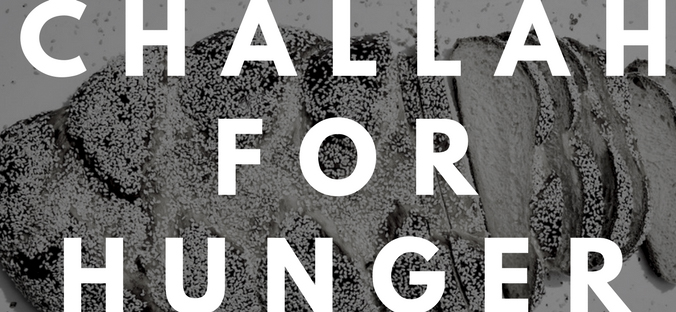
c/o Challah for Hunger
Challah for Hunger, a student organization on campus that promotes both social justice and interfaith community building, brings students together to make and sell challah, from which the proceeds go to both national and community causes. The group was started last year by Rachel Pomeranz ’21, who sat down with The Argus to talk about the club’s history and future.
Challah for Hunger was started at Scripps College in 2004 by a Jewish student named Eli Winkelman. Her longing for baking challah with family motivated her to begin baking it with friends. In this, Winkelman saw the perfect opportunity to turn these challah-making sessions into a well-organized group that had the potential to do to good in the world.
“[Winkelman and her friends] began selling the challah and donating the profits to social justice causes,” their website reads. “Word of Eli’s project spread, and soon Eli was guiding students, from all corners of the globe, as they started their own chapters.”
Pomeranz is one of those students influenced by Winkelman’s organization. She explained the logistics of the Wesleyan charter and its donation process.
“It is a national organization, and the national organization has a bunch of chapters throughout different universities,” she said. “And every university chapter makes Challah and sells it, usually in the university center or wherever, and then…half of [the proceeds] go to an organization that the chapter chooses, and then half of them go to MAZON, which is a national hunger-fighting organization and they do a lot of policy stuff. And a lot of their donations go straight to food pantries across the country.”
The organization chosen by the Wesleyan charter, Pomeranz explains, is beneficial to the local community.
“Our partner in Middletown is the Amazing Grace Food Pantry at St. Vincent de Paul, which services a lot of people in the area, including a lot of Middletown residents and people, like, right outside of Middletown,” she said.
Challah, in Jewish cuisine, is typically made for Shabbat or other important holidays. The braided bread has a symbolic as well as a physical importance in Jewish culture. The braids can symbolize love and community, or peace and justice. Pomeranz knows that there are definitely symbolic meanings behind the bread, but she doesn’t let that limit the scope of their interpretations.
“It’s usually eaten on the Jewish Sabbath, which is Friday night to Saturday night,” she said. “So, usually on Friday night to bring in the Sabbath. Jewish people would eat it with their meal, and the organization was started by a Jewish student who was thinking of it in that way, but it’s actually a very cross-cultural bread, and it’s really popular in a lot of parts of Eastern Europe.”
Pomeranz also admits that she does not know all that much about Challah, but the club itself is more than just the making of this bread. She explained how she became motivated to start this chapter and what specific aspects made her believe in the chapter’s ability to advocate for social change.
“One of my older cousins did Challah for Hunger in college, and she told me about it,” she said. “And it sounded like something really awesome, because although I don’t necessarily identify with all of the religious aspects of Judaism, one of the things I do identify with is ‘tikkun olam,’ which is kind of like ‘fixing the world’ and ‘helping the world,’ and that’s, like, one of the tenants of Judaism. So I really do identify with that…. I felt like this was something that I could do that would be really helpful in the community, and when I started it here I wanted it to be something that was definitely not only open to Jewish people. We definitely welcome everyone.”
Pomeranz wants students of any or no religious affiliation to come make Challah with the Wesleyan chapter, and by doing so, they’ll be in a tight-knit community that is fighting for those in need.
Jordan Saliby can be reached at jsaliby@wesleyan.edu.
Comments are closed